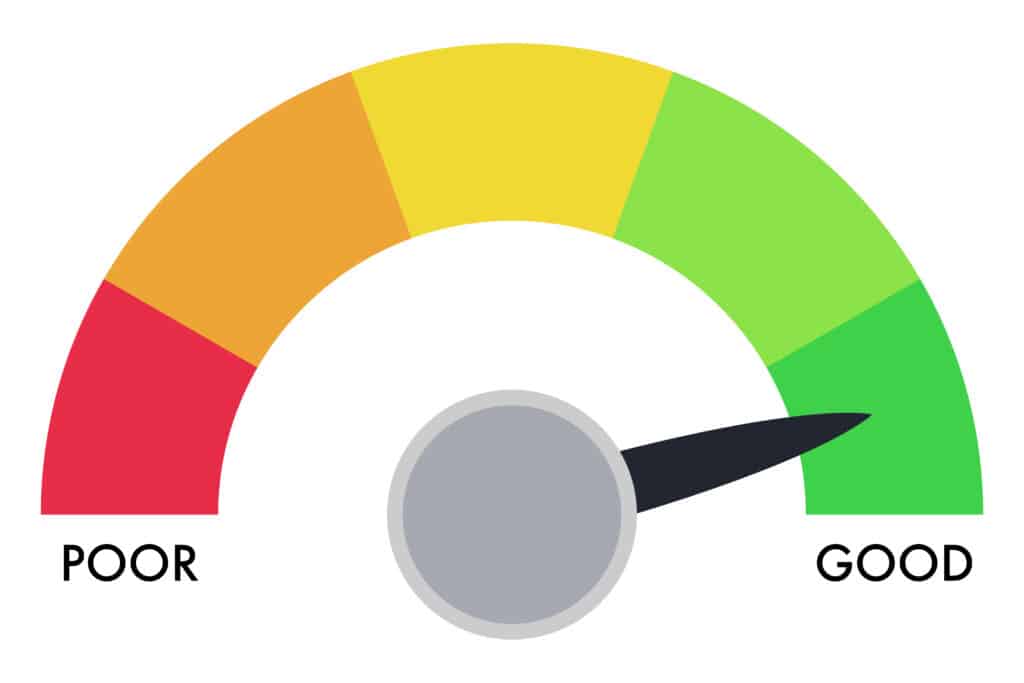
2024 Guide to Home Equity Loans: Secure Your Remodeling Dreams
Home improvement projects can transform your living space, but they often come with a significant price tag. A Home Equity Loan offers a promising solution, providing a solid financial foundation for your remodeling dreams. In this comprehensive guide, we’ll delve into the essentials of using a Home Equity Loan for remodeling, ensuring you make a well-informed decision.
Contents
- Understanding Home Equity Loans for Remodeling
- Considerations and Risks
- Home Equity Loan vs. HELOC for Remodeling
- The Impact of Market Conditions on Home Equity Loans
- Conclusion: Making an Informed Decision
- Frequently Asked Questions
- Question 1: Can I still get a Home Equity Loan if my credit isn’t perfect?
- Question 2: How quickly can I access funds from a Home Equity Loan after approval?
- Question 3: Are there restrictions on what I can use the Home Equity Loan for?
- Question 4: Does taking out a Home Equity Loan affect my credit score?
- Question 5: Can I pay off a Home Equity Loan early without penalties?
Understanding Home Equity Loans for Remodeling
What is a Home Equity Loan?
A Home Equity Loan is a type of loan where homeowners borrow against the equity of their home. Equity is the difference between the current market value of your home and the amount you owe on your mortgage. HELs often come with fixed interest rates, providing a lump sum that makes budgeting for your project more predictable.
Evaluating the Benefits: Predictable Budgeting with Fixed Rates
One of the key advantages of a Home Equity Loan is the fixed interest rate. This predictability is a boon for homeowners, allowing for straightforward budgeting throughout the duration of the remodeling project.
Lump Sum Financing
Receiving a lump sum payment means you’ll have the necessary funds upfront, a crucial aspect for many remodeling projects where large initial payments for materials and labor are common.
Considerations and Risks
Your Home as Collateral
It’s crucial to remember that your home acts as collateral for the loan. Failing to make payments could lead to severe consequences, including foreclosure.
Total Loan Cost
Beyond the principal amount, it’s important to factor in closing costs and other fees associated with a Home Equity Loan. These costs can add up and impact the total financial commitment.
Creditworthiness and Loan-to-Value Ratio
Your ability to secure favorable terms for a Home Equity Loan largely depends on your creditworthiness and the loan-to-value ratio. These factors determine the risk profile for lenders and subsequently influence the terms of the loan.
Steps to Securing a Home Equity Loan for Remodeling
- Assess Your Financial Situation: Determine your ability to repay the loan and consider your current financial obligations.
- Evaluate Your Home’s Equity: Understand how much equity you have in your home to gauge the loan amount you might receive.
- Shop Around for Lenders: Compare offers from multiple lenders to find the best interest rates and terms.
- Consider the Total Costs: Be mindful of the closing costs, interest rates, and other fees.
- Consult a Financial Advisor: A professional can provide personalized advice tailored to your financial situation.
Alternatives: Home Equity Lines of Credit (HELOC)
If you’ve read our previous blog on financing remodeling with Home Equity Lines of Credit, you’re aware of its flexible nature as an alternative to Home Equity Loans. HELOCs offer revolving credit, allowing you to borrow as needed. For more insights, visit our comprehensive guide on HELOCs by clicking here.
Home Equity Loan vs. HELOC for Remodeling
Basically it’s Apples and Oranges comparison. While both options leverage your home’s equity, they differ in structure. Home Equity Loans provide a lump sum with fixed interest rates, making them suitable for projects with a well-defined budget. On the other hand, HELOCs offer flexibility in borrowing but come with variable interest rates, which could be more challenging to manage.
Enhancing Your Remodeling Project with a Home Equity Loan
- Plan Your Remodeling Project: Define the scope, budget, and timeline of your project to ensure it aligns with the loan terms.
- Utilize the Funds Wisely: Allocate the funds strategically to cover essential remodeling costs.
- Stay on Budget: Monitor expenses to ensure the project stays within the loan amount.
The Role of Creditworthiness in Home Equity Loans
Securing a Home Equity Loan depends significantly on your creditworthiness. Lenders assess your credit history, current debt, and repayment history to determine the risk of lending to you. A strong credit score can lead to more favorable loan terms, including lower interest rates and higher borrowing limits. It’s essential to understand your credit standing before applying for a loan.
Improving Your Credit Score
- Regularly Check Your Credit Report: Monitor your credit report for errors and dispute any inaccuracies.
- Pay Bills on Time: Consistently paying bills on time positively impacts your credit score.
- Reduce Debt: Lowering your overall debt can improve your credit utilization ratio, a key factor in credit scoring.
Loan-to-Value Ratio Explained
The loan-to-value (LTV) ratio is another critical factor in securing a Home Equity Loan. It’s calculated by dividing the loan amount by the appraised value of your home. Lenders use this ratio to assess the risk of the loan. A lower LTV ratio generally means a lower risk to the lender, potentially leading to better loan terms.
Calculating: Your LTV Ratio
To calculate your LTV ratio, divide the amount you want to borrow by your home’s current appraised value. For example, if you’re looking to borrow $50,000 and your home is valued at $200,000, your LTV ratio would be 25%.
The Impact of Market Conditions on Home Equity Loans
Market conditions play a significant role in the availability and terms of Home Equity Loans. In a rising housing market, increased home values can lead to more substantial equity, potentially resulting in larger loans. Conversely, in a declining market, diminished home values might limit your borrowing capacity.
- Stay Informed About Local Housing Trends: Understanding your local real estate market can help you time your loan application for optimal conditions.
- Consider Future Market Predictions: While no one can predict the market with certainty, being aware of economic forecasts can inform your decision-making.
The Importance of Professional Advice
Consulting with a financial advisor or mortgage specialist is highly recommended before taking out a Home Equity Loan. These professionals can offer insights tailored to your financial situation, helping you navigate the complexities of home equity borrowing.
Seeking Professional Help
1. Financial Advisors: They can provide a holistic view of your financial health and advise on how a Home Equity Loan fits into your overall financial plan.
2. Mortgage Specialists: Specialists in home loans can offer specific advice on loan options, interest rates, and repayment strategies.
Conclusion: Making an Informed Decision
Choosing to finance your remodeling project with a Home Equity Loan is a significant decision. It requires careful consideration of your financial stability, the total cost of the loan, and the potential risks involved. By understanding the ins and outs of Home Equity Loans and considering your unique situation, you can confidently decide whether this financing option aligns with your remodeling aspirations.
Have you used a Home Equity Loan for remodeling? Share your experiences or ask questions below. Follow us on LinkedIn or Instagram for more insights and tips on home financing and remodeling from our experts!
Frequently Asked Questions
Question 1: Can I still get a Home Equity Loan if my credit isn’t perfect?
Answer: Yes, you can still get a Home Equity Loan with less-than-perfect credit, but your interest rate may be higher, and the amount you can borrow might be lower. Lenders consider your credit score, but they also look at your equity and repayment history.
Question 2: How quickly can I access funds from a Home Equity Loan after approval?
Answer: Once approved, it can take anywhere from a few days to a few weeks to access the funds from a Home Equity Loan, depending on the lender’s processes and how quickly you complete the required paperwork.
Question 3: Are there restrictions on what I can use the Home Equity Loan for?
Answer: Generally, there are no strict restrictions on what you can use a Home Equity Loan for. While many people use it for home remodeling or repairs, you can also use it for other expenses like debt consolidation or education.
Question 4: Does taking out a Home Equity Loan affect my credit score?
Answer: Yes, taking out a Home Equity Loan can affect your credit score. Initially, you may see a dip in your score due to the hard inquiry from the loan application. However, making timely payments can help improve your credit score over time.
Question 5: Can I pay off a Home Equity Loan early without penalties?
Answer: Some lenders may charge prepayment penalties for paying off your Home Equity Loan early, while others do not. It’s important to read the terms of your loan agreement carefully or ask your lender about any potential penalties before deciding to pay off your loan early.







